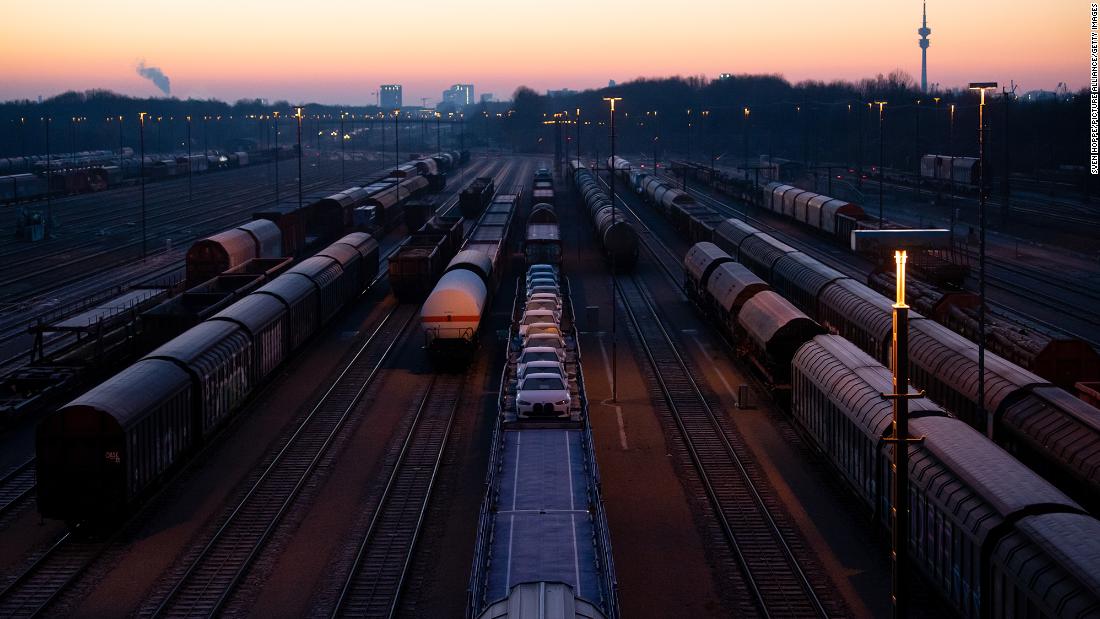The 5 countries with the most oil reserves in the world 0:56
New York (CNN Business) --
As Western sanctions take hold, Russians are bracing for a dramatic shift in their standard of living as their savings decline in value and imports of everyday goods rapidly shrink.
Over the past week, several Western companies have abandoned their operations in Russia to avoid violating sanctions.
They are also avoiding potential public relations predicaments that could result from maintaining ties with a country that is increasingly seen as a pariah on the world stage.
Russia admits its economy suffers "hard hits" as isolation increases
On Tuesday, Apple said it had stopped selling all of its products in Russia, following similar moves by car and truck makers including Ford, General Motors, Volvo, Renault and Jaguar.
Western oil giants Shell and BP ended the business alliance with their Russian counterparts earlier this week.
Disney, along with WarnerMedia, the parent company of CNN, paused the release of films in Russia.
Compounding the economic pain, two of the world's largest container shipping companies, Maersk and MSC, said they will suspend cargo bookings to and from Russia, with the exception of food, medicine and humanitarian supplies.
Freight trains stop on the tracks in the north of Munich, Germany, on February 28.
Following Russia's attack on Ukraine, Western countries imposed numerous sanctions and the EU imposed an export ban on goods, technologies and services for the aerospace industry.
Those outflows, combined with the falling value of the ruble, threaten to suffocate Russia's economy and deprive Russians of crucial foreign goods like cars, cellphones, clothing and food.
Although Russia's economy is primarily driven by oil and natural gas exports, it is highly dependent on imports of finished consumer products.
advertising
Russia's currency plunged about 25% on Monday, and a ruble is now worth less than a penny.
The weakened ruble is likely to exacerbate inflation, which was already well above the central bank's target before Putin's invasion of Ukraine.
There are already signs of panic, with multiple reports of residents waiting in long lines at ATMs over the weekend.
The central bank has avoided a sell-off in shares by keeping the stock market closed this week.
It also more than doubled its key interest rate to 20% to try to stabilize the currency.
moment of resignation
If history is any indication of how President Vladimir Putin's regime will respond to a disastrous domestic economy, then the Russians may face a difficult paradigm shift.
After its invasion of Crimea in 2014, Russia responded to Western sanctions with so-called import substitution policies to try to reduce its dependence on foreign goods.
Although more successful than most Western observers expected, those policies have had mixed results.
"There's been some pretty successful substitution, mostly of food, and some other parts that go into industrial goods ... but it's been mostly at the lower end of the economic scale," said Charles Lichfield, deputy director of the Center for Geoeconomics at the Atlantic Council.
High-tech hardware is an oft-cited example.
What is the SPR and why does Biden want to use it to fight Russia?
"That's something they're extremely dependent on, not necessarily Western providers, but providers that deal in dollars," Lichfield said.
The US export restrictions announced last week are designed to hurt Russia's military advancement, without causing undue stress on Russian consumers.
But the collapse of the ruble is already causing panic in a country that has seen a similar currency crisis in the last decade.
If the latest sanctions persist, Russia is much more likely to double down on national surrogates and tell its citizens to simply adjust to negotiating with the West.
"The way they approached it in 2014/15, the way they're going to approach it now, is to just tackle inflation, enact substitution policies and use oil revenues to support government spending," Lichfield said.
The Russian government can do that because public opinion is not as important to the Putin regime as it would be in a Western democracy.
"There is no real opposition, so the standard of living fell in 2014/15," Lichfield said, "but it didn't really have a political consequence. And I think they anticipate it will be the same this time."
Oil and gas prices soar 1:04
Russian invasion of Ukraine

